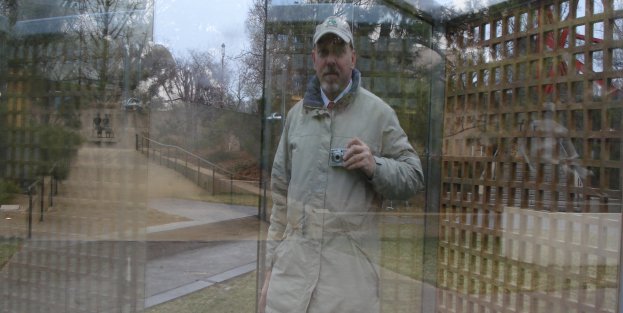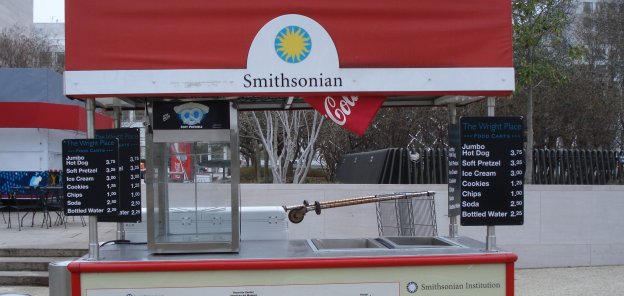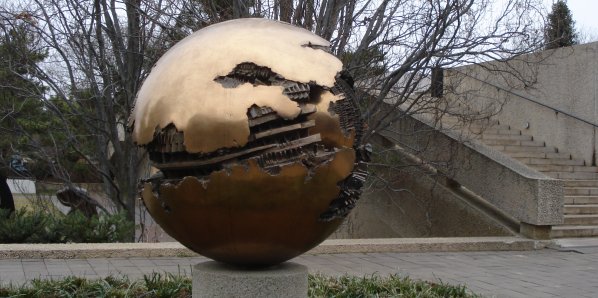
A solution is elegant if it is gracefully concise and simple; admirably succinct. Elegance also implies beauty and a profound understanding. The opposite of elegant solutions are clumsy, complicated and cumbersome. The parts fit together poorly and there are too many of them. We are working toward this sort of non-elegant solution to our problem of CO2.
I read today in Scientific American that the EPA will begin a carbon register. This will be a sort of Doomsday Book of carbon emissions, detailing emissions great and small with the eventual intent of regulating and taxing them. (You will recall that William the Conqueror commissioned the original Doomsday Book precisely so that he could squeeze the maximum taxes out of the newly subjugated Saxons.)

The announcement of the carbon Doomsday Book was greeted with ecstasy and enthusiasm by the chattering, regulating and taxing classes. They anticipate this will be as useful to them as the medieval version was to the Norman barons. If it moves, tax it; if it keeps moving, regulate it and if it stops moving subsidize it. This becomes much easier if you have detailed records. I am not against taxing carbon. On the contrary, I think we should tax it a lot. It is the most elegant way of reducing greenhouse emissions and weaning us away from oil, which is often controlled by bad men in unstable places. (We don’t fight wars FOR oil, but we certainly have trouble BECAUSE of it.) The carbon tax is elegant in its simple form. It creates the proper incentive and it has a minimal effect on freedom. It actual solves the problem while letting people and firms use their intelligence, imaginations and energy to find innovative ways to benefit from the new situation. That is why we won’t get the simple version.

Inelegant solutions persist because they create opportunities for well-placed people to squeeze out fees, skim off profits & collect tolls. A good metaphor, in fact, is a bumpy, winding toll road full of steep turns and choke points. Lots of people can collect tolls at these places. Others exploit the traffic charging higher prices to those who inevitably get stuck on the road. Garages make money by fixing flat tires and broken axles. The authorities can reward their friends with permits and special exemptions. And all the crooks can pretend that they want to fix the problem. They probably hold telethons; celebrities attend; politicians make promises. All this frenetic activity distracts the mass of people like a shinny object. They may even thank the perps for being inconvenience and ripped off. Occasionally, someone will smooth down a few bumps or fill some pot holes. Regulators will force some of the greediest exploiters to lower their prices, and everybody is grateful, but those who could really solve the problem in a systemic way make sure that nobody builds a bypass that will improve conditions at the expense of their sweet deals.
So the carbon Doomsday Book will form the basis of some kind of cap & trade. Cap & trade can work. It worked beautifully, inexpensively and elegantly to reduce the pollution (SO2, NOX etc) that led to acid rain. But it requires as preconditions a relatively small number of participants with an easily measured output working under roughly similar conditions enjoying available alternative options all subsumed under a system that can ensure against cheating and/or excessively gaming the system. Carbon cap & trade meets none of those conditions because carbon is everywhere.
Every human activity produces CO2. Notice I did not use the qualifier “almost”, because you are producing CO2 as long as you are breathing and even after you stop doing that, you continue to emit CO2 when you decompose. When you include other greenhouse gases, such as methane, you covered almost anything you can think of doing beyond breathing.

CO2 is not pollution. It is a necessary part of the ecological system. We just may have added a bit too much of it for the current balance. That means that regulating this is extremely difficult through anything except a very simple tax on the fossil forms of CO2 (oil, coal, gas etc).
You can imagine the absurdities & shenanigans that will come from a political interpretation of the cap & trade on ubiqutous carbon. Politically powerful groups will get exemptions. Others will figure out elaborate ways to game the system. Maybe if all our employees just held their breath … I am not completely unbiased. My forests produce carbon credits, which I could sell to rich celebrities, who can then devastate the atmosphere with guilt-free impunity. I explained how I rationalize this in an earlier post, but you will find people a lot smarter than I am with even better rationalization. They will all form long lines at the government trough. Most will get more than the couple hundred dollars a year my forest land earns by doing things less useful than growing trees.

The cap & trade will cost us at least $646 billion (yes billion with a b) by 2019. I think that is a price we must be willing to pay. Price is the only thing that reliably stimulates conservation and energy innovation. Experience shows that CAFE standards just make activists feel good and provide political cover. And all the talk about conservation is just people talking until the prices go up. In 2006, the U.S. succeeded in reducing its CO2 emission during a time of rapid economic growth. No other major country had ever done that. How? The only thing that was different was price of oil.
Besides, it doesn’t have to be all downside. The potential energy solutions are related to some very cool technologies (nanotech, biotech, better materials etc) and the advances might well be worth more than the cost – IF the incentives are right. We need to keep it simple and elegant. A simple tax on carbon will do that. Cap & Trade might work for carbon too, but given the fecklessness of politicians it will probably cost more than it should and produce less innovation than it could.
You can read more about the advantages of a carbon tax v cap & trade at this link.
